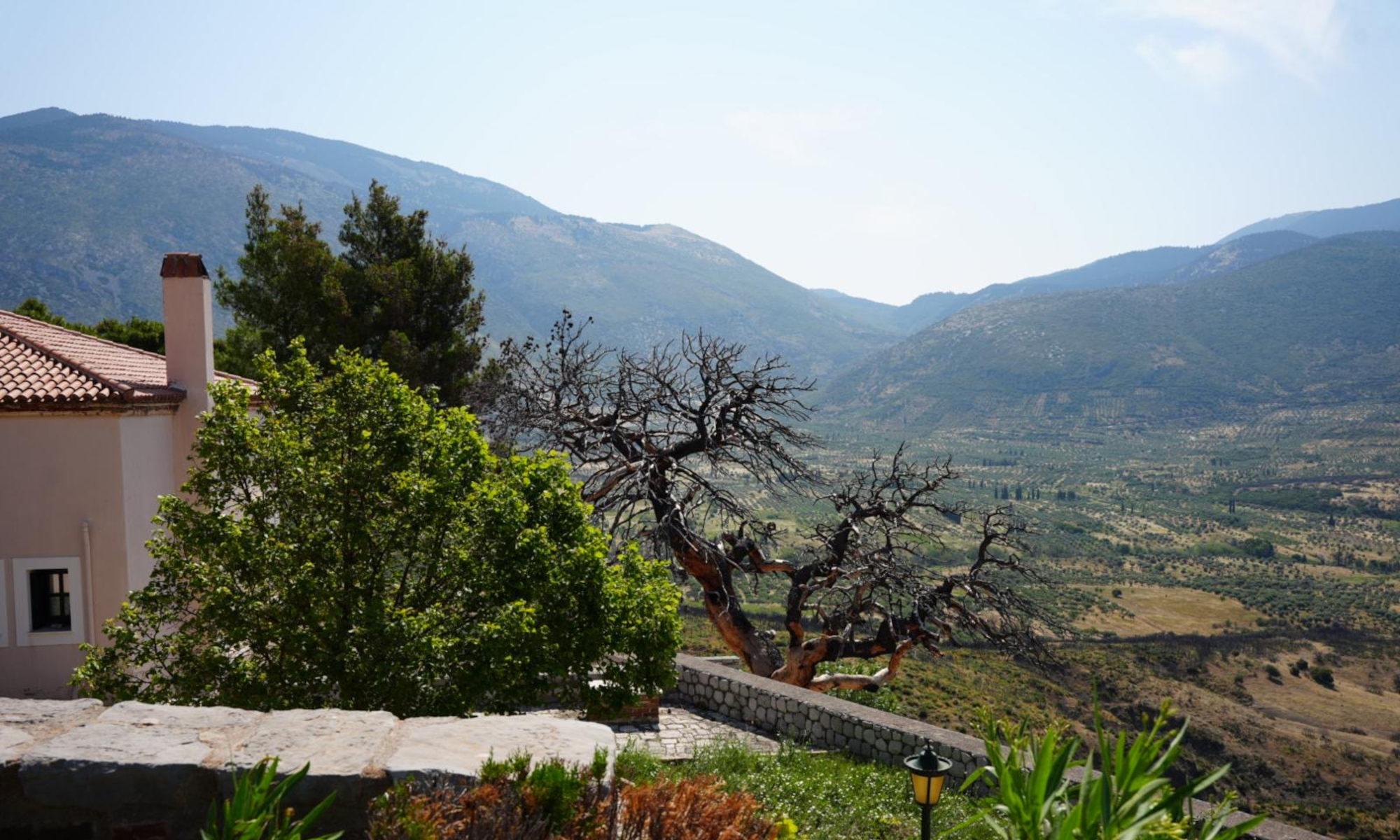“Mathaíneis elliniká?” asked my taxi driver, a man named Apostolos who looked to be in his late 40s. I looked up from my Lonely Planet Greek Phrasebook to meet his question with a clueless stare, racking my brain for the right hand gestures to communicate I have no idea what you just said. Then his phone interjected. “Are you learning Greek?” chirped the automated voice from the front of the car. Apostolos had pulled up a translation app as he was driving. Thanks to new technology, not even the language barrier can stand between a Greek taxi driver and a conversation partner. I had barely managed to stutter out a “yes…uh, ne,” before he spoke more rapid-fire Greek and his phone filled me in: “what words do you know?”
My limited vocabulary flashed through my head. There were the basics: yes, no, thank you, goodbye. The rest of my Greek vocabulary, however, was a grab bag of some less basic words: metanástis (migrant), tsakiste (crush), fasístes (fascists), eleuthería (freedom), and, of course, Palaistíni (Palestine). These words were nowhere to be found in the Lonely Planet Greek Phrasebook; instead, they stood out to me in bold, graffitied letters from the walls of seemingly every building that I walked by. In my first few days in Athens, I had taken in hundreds of graffitied slogans, first in English then in Greek–like flash cards.
Now, thanks to Athenian graffiti, I may not know how to ask what day of the week it is, but I can at least say “crush the fascists.” I opted to stick to the basics in my conversation with Apostolos.
The phrase “the writing’s on the walls” refers to the biblical story of Daniel Chapter 5. When the Babylonian King Belshazzar held a banquet using cups stolen from a temple, a disembodied hand suddenly appeared and wrote on the walls of the room in a script that only the prophet Daniel could read. The “writing on the walls” was a message from God, proclaiming that the king had been, in the words of the Bible “weighed on the scales and found wanting.” That night, King Belshazzar was slain in his sleep.
In Athens, the literal writing on the walls also portends future calamities, although perhaps less explicitly. Among the most common English phrases were “AIRBNB FUCK OFF,” “TOURISTS GO HOME,” and “SOLIDARITY WITH MIGRANTS.” Each of these slogans speaks to an existential threat that Greece is currently facing.
“Probably the hottest political issue is how to deal with the housing crisis, because salaries in Greece are very low.” said Alexis Papahelas, the Executive Editor of Kathimerini, the largest Greek news outlet. “After the pandemic, we had way more tourists and way more investment in real estate […] this created a whole different situation for Athenians.”
The fact that more than half of the graffiti was in English instead of Greek also foretells a future threat to Greek culture. Apostolos was delighted when I confirmed I was learning Greek. “It’s a difficult language, but it’s the ultimate language,” he told me. But if Greeks want to be understood, it seems they have to translate their words to English, both in their graffiti and in their taxi cabs. As tourists, expats, and migrants continue to flow into Greece in increasing numbers, I wonder how the Greek language, one of the oldest in the world, will survive another hundred years.
